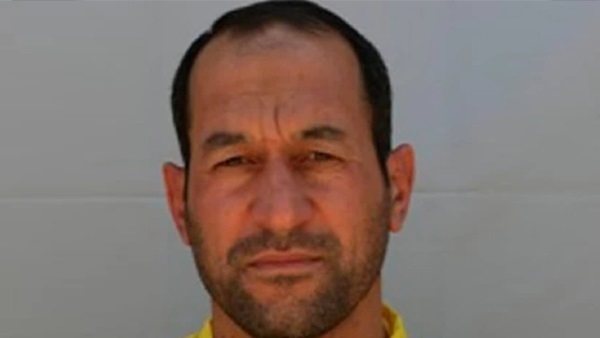Al-Baylawi: Daesh engineer and Prince of terrorism in Boca prison

In June 2014, as the burning sun set fire to
events in Iraq, which was on the verge of a sudden turn in history, the Iraqi
security forces reached a house in the left of the city of Mosul, belonging to
one of the senior leaders of the Daesh organization called Abu Abdalrahman
al-Baylawi.
Iraqi forces raided the house where he was
staying, based on confessions made by Abuhajer al-Asafi, the coordinator of
Daesh General Post at the time, but did not succeed in arresting Belawi who
refused to surrender and preferred to resist until the end.
Less than a month later, the Daesh terrorist
organization announced what it called the battle of revenge for Abu Abd
al-Rahman al-Baylawi, which was launched from the right-wing neighborhood of
Mosul and ended with the fall of the entire city in the grip of Daesh.
After the flash battle in Mosul, the
organization published a voice word through its spokesman, Abu Muhammad
al-Adnani, in which it announced the killing of Abu-Ubd al-Rahman
al-Baylawi-Adnan Ismail Najm, revealing his role in the organization, asserting
that he served as the general coordinator of the Daesh states and the
mastermind of the battle for control of Mosul.
Of the Saddam army to the group of Zarqawi
Born in 1974 in the Iraqi province of Anbar,
Adnan Ismail Najm al-Dulaimi was born in Iraq's Anbar province. After his
return, he joined the Iraqi military college and graduated to join the elite
Republican Guard under the rule of Saddam Hussein.
Najm lived in the military until the rank of
Captain before the US occupation of Iraq in 2003, but he shifted from believing
in Baathist ideas to embracing the ideas of the Tawhid wal Jihad group founded
by Abu Musab al-Zarqawi in 2003.
Najm was one of the oldest Ansar, a
description that the terrorist organization calls the Iraqis who joined the
terrorist organizations at the beginning of its activity, but was one of the
close and accompanying group, the leader of the Tawhid group and Jihad Abu
Musab al-Zarqawi for about 3 years.
During this period, Najim took charge of what
is known as Ramadi and Fallujah, and during that period he was known as Abu
Bakr al-Baghdadi, who occupied the so-called criminal judge of the city of
Falluja.
In prison he was chosen by the terrorists to
serve as the "prison prince" in charge of managing their affairs and
solving their problems, but not only that, but went to study the various legal
sciences, in prison.
Before the US withdrawal from Iraq, US forces
handed over Najm to the Iraqi forces that Abu Ghraib imprisoned in order to
serve his life sentence.
Escape from Abu Ghraib
After a period of his transfer to Abu Ghraib,
specifically in July 2013, the terrorist organization fighters attacked the
prison during the so-called "Demolition of the Walls" campaign aimed
at smuggling the leaders and elements of the terrorist organization from Iraqi
prisons in the period from 2011 to 2013.
Najm went out of prison and returned to
communicate with the terrorist organization's members who were his associates
inside the Boca detention complex. To the confidence of al-Baghdadi and his
deputy at the time, Abul-Salam al-Turkmani, Fadhil al-Hayani, a former
Republican guard in Najm, assumed responsibility for military planning within
Daesh, and also oversaw the cells of the organization deployed in a number of
Iraqi cities.
He also visited a new identity in the name of
Abdullah Hussein al-Jubouri, a colonel at the intelligence and security
department of the Iraqi Ministry of Defense, to escape the security prosecution
and be able to pass through the checkpoints that were set up by the Iraqi army
and police forces.
In addition to the coverage procedures
followed by Al-Baylawi, he presented the speech of an Iraqi woman named Wafa
Ammar Hazem after he claimed to be a construction contractor in Iraq.
According to a previous meeting with the
"wife of Bellawi", he was careful not to communicate with her over
the phone, saying that he was detained by the "Americans" because of
his previous job as a captain in the Republican Guard, and is afraid of
prosecution if the phone was used.
After completing the marriage, in December
2013, Belawi began planning the Mosul battle, which was originally intended to
capture parts of the right-hand part of the city, and to withdraw later if
elements of the organization faced military pressure from the Iraqi army.





